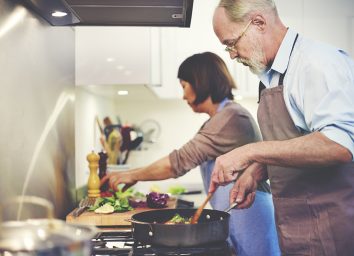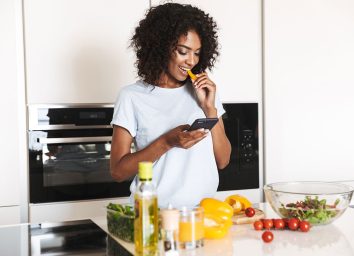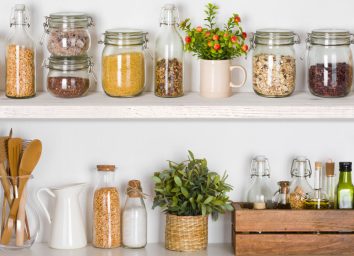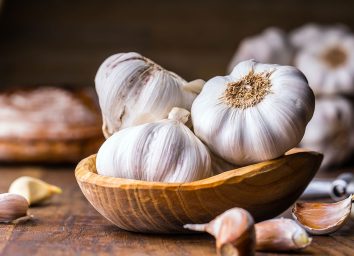Can Food Packaging Carry Coronavirus? We Asked Food Safety Experts
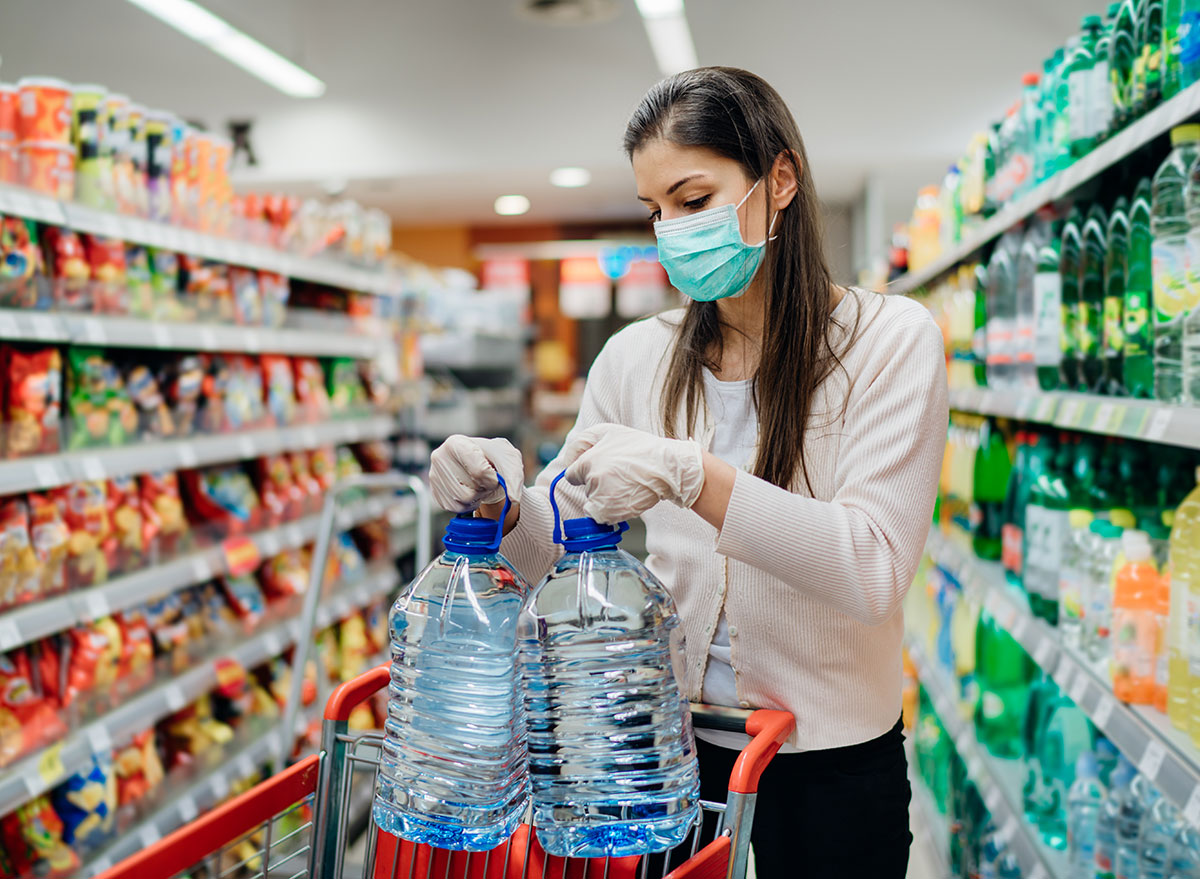
You already know that staying away from people is the number one protective strategy from contracting the coronavirus. That’s because the virus is transmitted through droplets of saliva, and can travel from one person to another when an infected person sneezes, coughs, or otherwise spreads these droplets around.
Because of this, grocery stores can be anxiety-inducing for several reasons. For one, they’re usually packed with people, who will more likely than not penetrate your six-foot radius safety zone. But the question of secondary transmission via groceries and packaging is quickly becoming something we’re all worried about, too. Can objects and surfaces house the virus long enough for it to infect another person touching it? Should you be wiping down your groceries when you get home or wear gloves when you’re shopping?
We chatted with experts to find out. (For more grocery news, here are 8 Grocery Items That May Soon Be in Short Supply.)
So, can you get coronavirus from the groceries you’re bringing home?
“No, it is not likely that you will get coronavirus from the groceries you bring home,” says public health specialist and founder of Give Space, Carol Winner, MSE, MPH. “We know that the highest rate of transmission of the virus is person to person, not broccoli to person.”
Jory Lange, a national food safety lawyer, agrees, “While technically possible, it’s very unlikely. There are no known cases of COVID-19 from food. According to the CDC and FDA, there is no evidence to support transmission of COVID-19 associated with food or food packaging.”
The reason for this, as Lange points out, is that coronavirus is vulnerable to heat, “Cooking food should kill any coronavirus that may be on the food.”
But what about the foods that you eat raw, like fresh fruits and vegetables? “Foods that you don’t cook, like fruits and vegetables, should always be washed with water before eating anyway,” she says.
Stacey Krawczyk, MS, RD, principal consultant to the Grain Foods Foundation, offers a note of caution against using harsh chemicals on your produce: “The FDA and CDC both recommend that you do NOT wash produce with anything other than clean water. Residual detergents or chemicals can be harmful if ingested.”
For more tips, read our guide to Safely Washing Produce During Coronavirus.
What about the grocery packaging?
The consensus on this one seems to be that, although technically possible, transmitting the virus through inanimate objects such as grocery packaging, is highly unlikely. Studies have shown that coronavirus has the ability to survive on certain surfaces for up to several days, but Katie Heil, a certified food safety professional at State Food Safety, notes that there doesn’t seem to be evidence that people can get infected by coming into contact with those surfaces.
However, if you’re the kind of person that prefers an abundance of caution, Lange advises you try the following techniques:
- After you unbag your groceries, wash or throw away the bags. Then wash your hands thoroughly with soap and water for 20 seconds.
- Consider setting any pantry items to the side for a few days before you eat them. Coronavirus can last for 3 days on plastic or metal, and 24 hours on cardboard. If you’re not planning on eating something in the next 3 days (and it doesn’t need to be refrigerated), there’s probably less risk of cross-contamination when you set it to the side than you would have by handling it to wipe it down.
- You can always wipe down milk or juice containers before you put them in the refrigerator. We handle these things often and by doing this you won’t have to remember to wash your hands every single time you touch the milk carton.
- For any other foods that you are refrigerating or freezing, unbox them after you take them out of the refrigerator, then wash your hands.
Should you be wearing gloves at the grocery store?
The latest CDC recommendation advises wearing a face mask while out in public, but what about wearing gloves when you’re handling objects at the grocery store, which other people may have touched? “Current recommendations do not suggest that wearing gloves should be the routine practice,” says Krawczyk. She suggests using hand sanitizer as an extra precaution before and after selecting produce, paying, and loading and unloading your groceries.
As always, gloves or not, be mindful not to touch your face or potentially contaminate other surfaces. Krawczyk recommends leaving as many things at home or in your vehicle as possible, to decrease the chances of contamination (purse, phone, etc.)
Now that you know how to properly care for your food, here are Coronavirus Grocery Shopping Myths You Need to Stop Believing.
